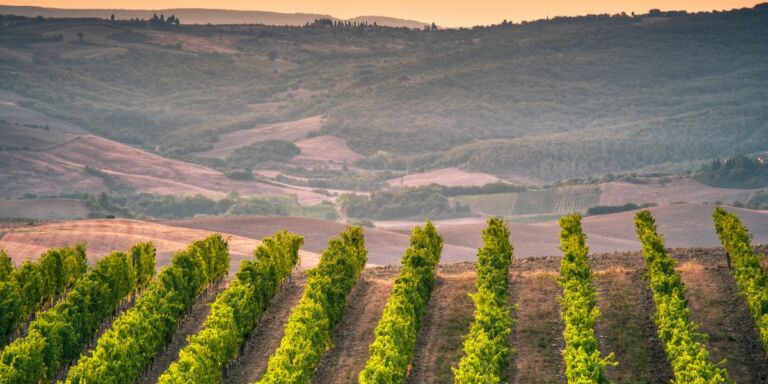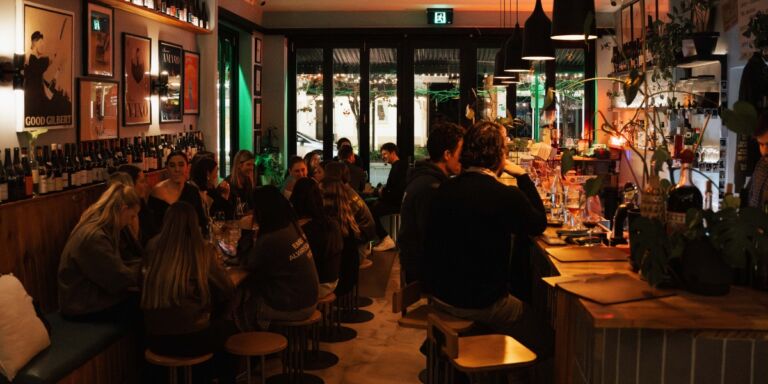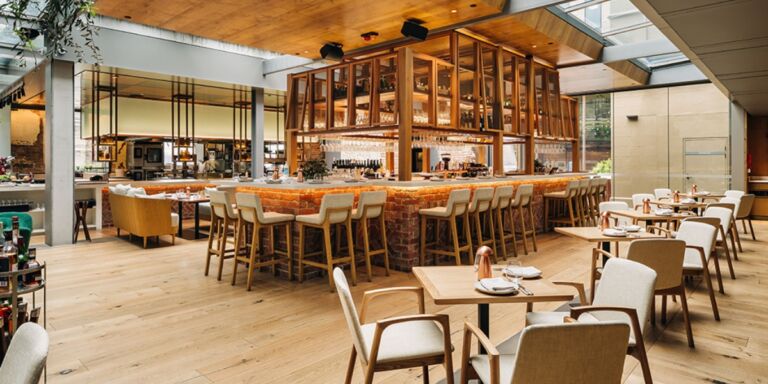Most people who seek out a new career as a producer of luxury goods are content to safely start at the bottom – or at least in the middle – and work their way up.
When Olivier Bernstein decided to found a Burgundy wine maison from scratch in 2007, the business plan of the then 40-year-old executive who grew up in Touraine in the Loire Valley was to risk starting at the top – even though he owned no vineyards or grape contracts, and had no experience making wine from Pinot Noir and Chardonnay grapes. Surprisingly, given that great wine region’s stubborn, hidebound traditionalism, he was an instant success. Twelve years later, the 51-year-old Bernstein still seems a little surprised that his plan worked so perfectly, and that his eponymous Olivier Bernstein premier and grand cru Burgundies are among the region’s most sought-after wines, generally selling for several hundred dollars a bottle.
A genial, outgoing, tousle-haired man, Bernstein comes from a family that has appreciated culture at all levels, but also one that values entrepreneurial business acumen. His family’s business, the well-respected classical music publishing company Bärenreiter, was founded in 1923 by Bernstein’s grandfather in Augsburg, Germany. It relocated in 1927 to Kassel, Germany, where it is still headquartered today, with offices in London, New York, Basel and Prague.
However, Bernstein struck off on his own, rising to a career in international management for the French rail agency TGV, before deciding that his amateur’s passion for wine outweighed his passion for management. In 2002, he bought a small wine estate in the backwoods of Roussillon in the south of France – “it was all that I could afford” – and earned a degree in viticulture and oenology in Beaune, the wine capital of Burgundy, where he interned briefly with Burgundy legend Henri Jayer. Five years later, Bernstein decided to take a leap of faith from the backwaters to the citadel of French winemaking.
He divides his time between his houses in Beaune and Paris, and produces and ages his wines in small cellars in Beaune and the nearby village of Gevrey-Chambertin. His most expensive wine is Chambertin Clos de Bèze, and the 2017 vintage sells at Fine+Rare in London for £2,250 per bottle and at Morrell & Company in New York at $1,385. In Hong Kong, 2016 is the current vintage and sells for about $1,008 (US) at Altaya Wines.

Why did you decide to get into winemaking?
I come from a family of entrepreneurs in classical music; they were creative and valued culture and the arts. I eventually decided to create my own métier – wine, as I had become a collector and had visited many wine estates in my travels – rather than eventually managing the family business.
Why did you decide to leave Roussillon for the much-harder task of making wine in Burgundy? After all, Burgundy values traditional winemaking more than it does innovation, and it seems practically everyone who makes wine here was born into the business.
I worked eight hectares [about 20 acres] in Roussillon, and it was a really difficult business with small margins. I was trying to make money by selling wine at about five euros ex cellar, which was difficult. In Burgundy, it’s possible to create added value in making wine. The production costs were similar in both cases, but here I could bring my personality and signature to the winemaking.
Did you have a business plan?
It was a crazy bet with myself that shouldn’t have paid off. When I arrived in Beaune and started talking with vineyard owners, I found that some negoçiants had cancelled contracts because they thought the grape prices were too high. So, doors were opened, and I was extremely lucky. I was looking for old vines, and when I found them, I asked the owners to sell or rent me a few rows to farm. And I guaranteed them 100% of the price they would have been paid. I think they saw me more as a farmer – which I had been in Roussillon – than a negoçiant.
It was a crazy bet with myself that shouldn’t have paid off
What happened after you secured sources for the best grapes?
From a marketing standpoint, nothing was yet in place. But when I had my wines in the barrel, I was able to get a few journalists to taste them. Allen Meadows [editor of Burghound, a highly influential English-language Burgundy publication] gave me good scores, which was a shock to collectors and importers who had never heard of me. Berry Bros [in London] found out about my wines and wanted to buy everything. I received payment before I ever bottled a single wine. It was a dream to me.
Your wines must have been a relative bargain at the time.
Yes, the prices have tripled over the past 10 years. When people on the market asked me “who do you think you are selling to at these prices?”, I always told them I didn’t have a choice.
Have there been any vintages since where you didn’t sell out everything before bottling?
Never. I made three barrels that first year. Today, I make about eight barrels, all grand or premier crus.


Do you remember that first Burghound score?
If I remember correctly, he gave our 2007 Mazis-Chambertin 94-96 points.
Did you have any outside consultants or advisors to help you?
No, just me.
You produce 11 grand crus and premier cru wines from those barrels at the moment, most of them red wine, but you recently started making white Burgundies again after not doing so for a few years. Will that be ongoing?
We made three barrels of Corton-Charlemagne in 2017 and in 2018, and we plan to continue to do so.
You’ve purchased two properties since your start in 2007, but you still primarily rent land – sometimes just a few rows of vines – from owners. Is that a long-term business model?
We buy from different farmers, but it is important to understand that we do all the farming. I ask the owner to stay home and do nothing, as I operate a traditional cellar. Most of my colleagues own land, and ideally I would like to buy more plots, but they very rarely become available. I bid, unsuccessfully, on a part of Musigny, but I would have had to charge €2,000 per bottle ex cellar to have broken even. Now I am talking with some investors who are interested in buying properties, but letting me make the wine.
What drove you to take these risks, albeit ones that have paid off?
It’s almost like I have this family disease. We are very demanding in what we do. Before, I was managing companies, but making wine is 10 times more complex. Each vintage is like taking care of a single company, and I carry three vintages in my head at any one time. I get bored easily, so with wine, if I’m getting 95% of what I want to achieve, that last 5% is what interests me. I admire the Japanese for having this same drive for perfection. Of course, wine quality is subjective, but still, through that 13-month process, we try to make no compromises at all.


For people who can locate Olivier Bernstein wines and can afford to buy them, what is the upcoming vintage like?
The 2017 vintage was just bottled in April. It’s a beautiful vintage – beautiful fruit, good acidity. It will last for many years.
Eighty barrels of wine doesn’t go a long way. Are your wines readily available outside Europe?
Our white wine – the Corton-Charlemagne – is popular in Japan. Berry Bros represents us there and in Singapore and Hong Kong. In the United States, we’re represented by Wilson Daniels, which has also long represented Domaine de la Romanée-Conti. In fact, six of our importers worldwide also handle DRC, so whenever someone comes to visit DRC, I get to see them too.
Do you keep a library of your wines?
I needed the money, so I sold out of the ’07 and ’08 vintages, and I haven’t tried to buy any back. A Chicago collector did invite me to taste a bottle of ’07 from his cellar, which was very generous of him, but it really wasn’t my best vintage.







